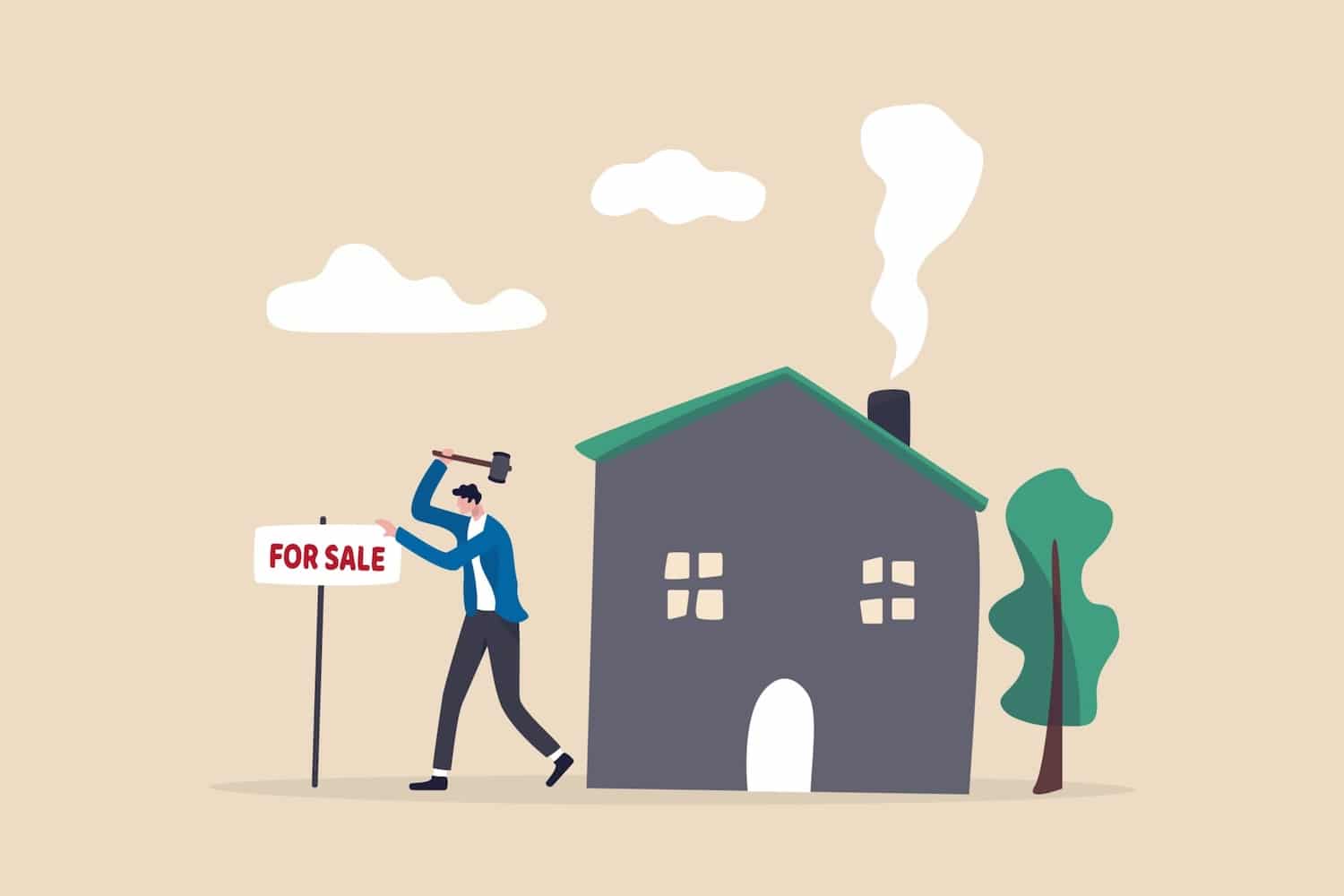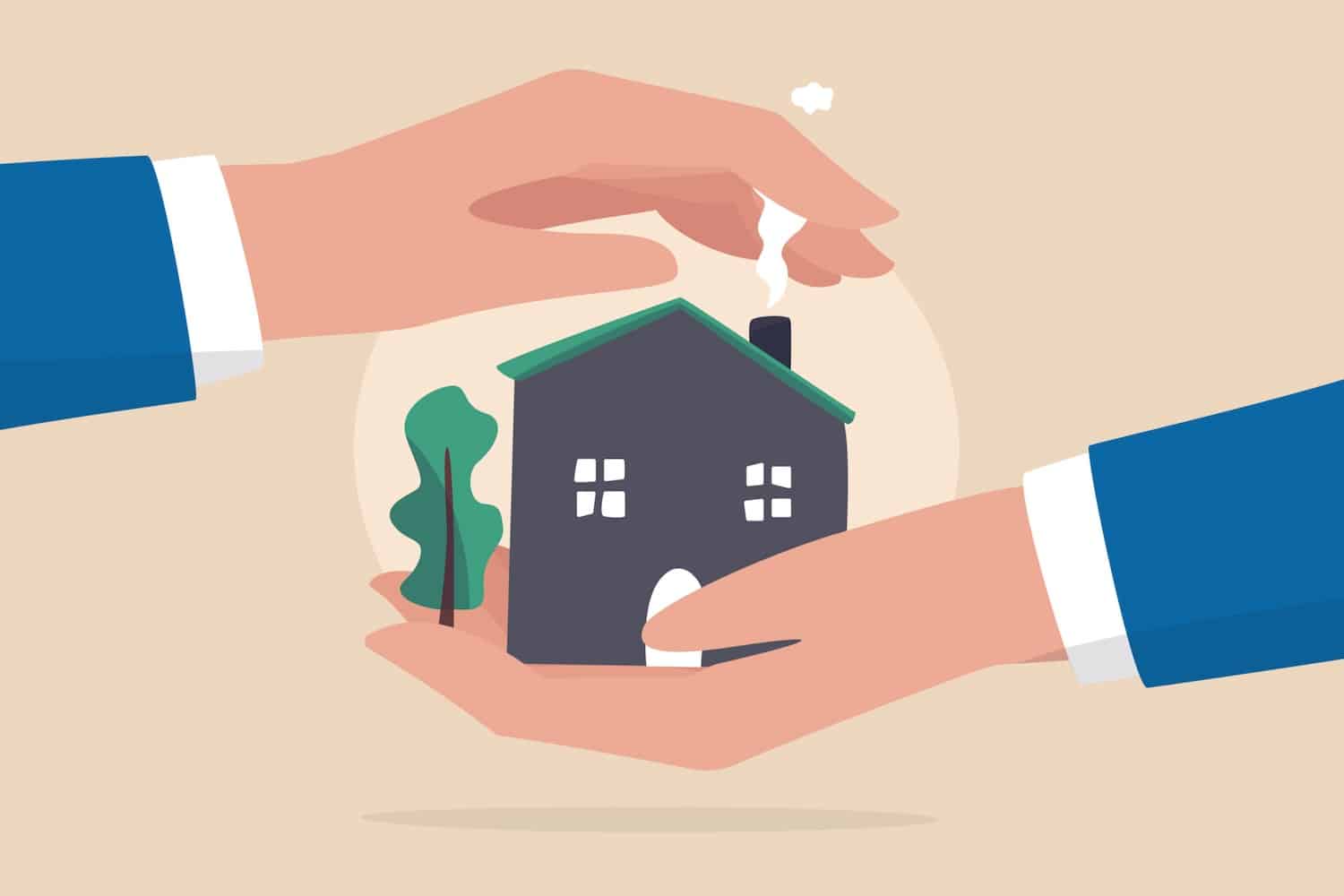Investing in the UK property market can be a profitable route to take, and there are a few avenues you can explore. However, navigating the UK property investment market can be overwhelming and challenging. It comes with rapid changes that are driven by external events.
The optimistic forecast for 2024 and beyond makes it a desirable and lucrative proposition for investors considering the best way to invest in UK property. 2023 has seen a slight dip in the UK house prices as the market corrects itself after the pandemic. However, this downward trend in UK property prices won’t last long.
UK property prices could rise by 1% in 2024 and increase by as much as 17.9% by the end of 2028. So, if you’re exploring how to invest in the UK property market anytime soon, we’d advise you to do so before property prices rise.
How to invest in the UK property market
When investing in property, many assume it involves purchasing a property. However, it doesn’t necessarily mean buying a building. You can invest in property in many ways, either directly or indirectly.
If investing in property is an area of interest for you, and you are looking to explore the options available either on its own or part of a more extensive investment portfolio which would spread the overall risk, then we would advise doing your research, looking further into your finances, and outlining the steps that you will need to take.
The type of avenues you could explore include direct and indirect property investments:
| Direct Property Investments | Indirect Property Investments |
| Buy-to-let property investment | Peer-to-peer lending |
| Property development | Property investment trusts |
| Buy and sell a new build | Property bonds and loan notes |
| Investing in property abroad | Property Open-ended Investment Companies (OEICs) |
| Social housing property investment | Property ISAs (these let you invest in property without paying tax on your returns) |
| Shares in listed property companies | |
| Property units trusts |
Whichever investment route you decide to take, remember that investing in property can be rewarding, but it can also come with risks and challenges.
Buy-to-let Property Investment
Buy-to-let means you’re investing in purchasing a private residential property, which you can then choose to rent to tenants. One aspect of this investment is that most mortgage lenders require a 25% deposit of the property price when purchasing a buy-to-let property. Purchasing a private property to rent to tenants is more complex than other types of investment.
Property Development
Property development can be one of the most interesting yet risky avenues. You purchase a private property to refurbish and then sell the property, hopefully for a profit. Risks are involved with this, but if done correctly, it can produce some of the highest returns on investment.
The outlay can be costly, from purchasing the property to refurbishing costs. Property refurbishments usually come with delays, and with delays comes extra expenditure.
For people who value their time, property development isn’t the route you want to take. It can be a slow and time-consuming process. Property development shouldn’t be your first option if you’re an investor with limited time or you want to pursue investment opportunities that offer passive income with less commitment.
Buy and Sell a New Build
As an investor, you could explore the option of purchasing a new build ‘off plan’, which means buying a property before it’s been completed by the builder. This type of investment could make you money if the property value has increased from the price agreed at the outset by the time it’s finished. You can then sell it on to make a profit. You can add value to the property by decorating it to a higher standard and adding additional upgrades, which could help increase your profit margin.
This investment strategy can be risky as you have yet to see the finished property, so it might not end up as expected. The developer could even go bust, and there is also the added pressure of no guarantee that selling the property would come with a profit.
You could also need help to sell the property, which means you are responsible for paying the mortgage and all the other bills that come with owning a property until you do.
Property Investing Abroad
If you have explored the UK property investment opportunities and they don’t appeal to you, consider investing in a property abroad. You can make money by letting it to holidaymakers while having a place to go for your holidays when it’s not being rented out. This way, you can gain a rental yield for the property, and if it goes up in value, you could make a profit when you sell it, too.
The currency exchanges are ways that investors benefit from investing in property abroad. Investing in alternative markets from their currency, such as the £ or the $, allows investors to diversify their property portfolio and spread their risks. They can also benefit from a currency increase in value and property.
Social Housing Investment
Social housing is a term used to describe a variety of accommodation provision for those that need it. Data shows that investment in social housing is by far the largest segment of the £6.4 billion social impact investment market.
Investment in the social housing sector has been steadily growing for several years and is one of the areas highlighted for future growth. One of the contributing factors to this is that demand is high, and the supply of social housing is lower. It also offers unique qualities for property investors – rent is usually backed by central or local government schemes, with voids in rent traditionally covered by the housing association. Investors won’t deal with the tenants directly or any of the handling of the property, as a property management company handles this. This hands-off approach to becoming a landlord makes it an attractive investment opportunity for people who want to invest in the property sector without the stresses it can come with.
The demand for social housing is expected to grow in the coming years due to population growth, changing demographics, and increasing levels of homelessness. Investing in social and affordable housing can provide long-term stable returns for investors while addressing a societal need. Government subsidies and tax incentives may also be available to social and affordable housing project investors, making it an attractive UK property investment opportunity.
The most significant risks for any property investors are the potential for loss and the unpredictability of fluctuations in income. The private property market is notoriously volatile, with rising mortgage rates and lower house prices, so government-funded housing makes for a lucrative and secure investment alternative. Choosing social housing is an area that allows investors to not only gain strong financial returns but also enables them to make a positive difference in society.
We have previously outlined the pros and cons of investing in social housing, which you can read more about here.
Real Estate Investment Trusts (REITs)
Real Estate Investment Trusts (REITs) invest in property and profit from rental properties.
As an investor, you would purchase REIT shares that can be traded on the stock market. Your money and other investors’ money are clubbed together to invest in property. They work the same way as any other share purchase, where you will make money if the share price increases, usually when you choose to sell. You can also make money from dividend payments, which are paid at certain times throughout the year. You would receive these for every year you hold the shares. However, share prices fluctuate daily, and dividend payments aren’t guaranteed.
One positive is that REITs must pay out 90% of their income to shareholders, and they also get tax benefits in return – they don’t have to pay corporation tax or Capital Gains Tax (CGT) – which can mean more significant payouts.
They are also much easier ways to invest than buying physical property, which is easier to get out of as the shares can quickly be sold. You can also invest much less than spending tens of thousands buying a single property.
Other indirect ways of investing in property include:
- Peer-to-peer lending
- Property bonds and loan notes
- Property Open-ended Investment Companies (OEICs)
- Property ISAs
- Shares in listed property companies
- Property unit trusts
UK Property Investing with Yield Investing
At Yield Investing, our primary focus is to provide hassle-free investment opportunities that empower investors to earn passive income whilst eliminating the headaches typically associated with owning a property. Our expert team renovates and operates developments with long-term commercial property tenants in place, which provides a stable and reliable source of rental income for our clients.
Our focus is to help clients increase the yields made from their investments by offering alternative ways to invest, which are not commonly found in the property investment market, such as social housing, primary and secondary locations and well-renowned developers. We combine this with our local market knowledge, allowing us to offer clients real estate opportunities with obvious benefits to their investment portfolios effectively.
Curious about how your investments can make a difference? Contact our property advisors today, and let’s build a portfolio that delivers returns and transforms lives and communities. Together, we can shape the future of responsible investing and housing solutions in the


